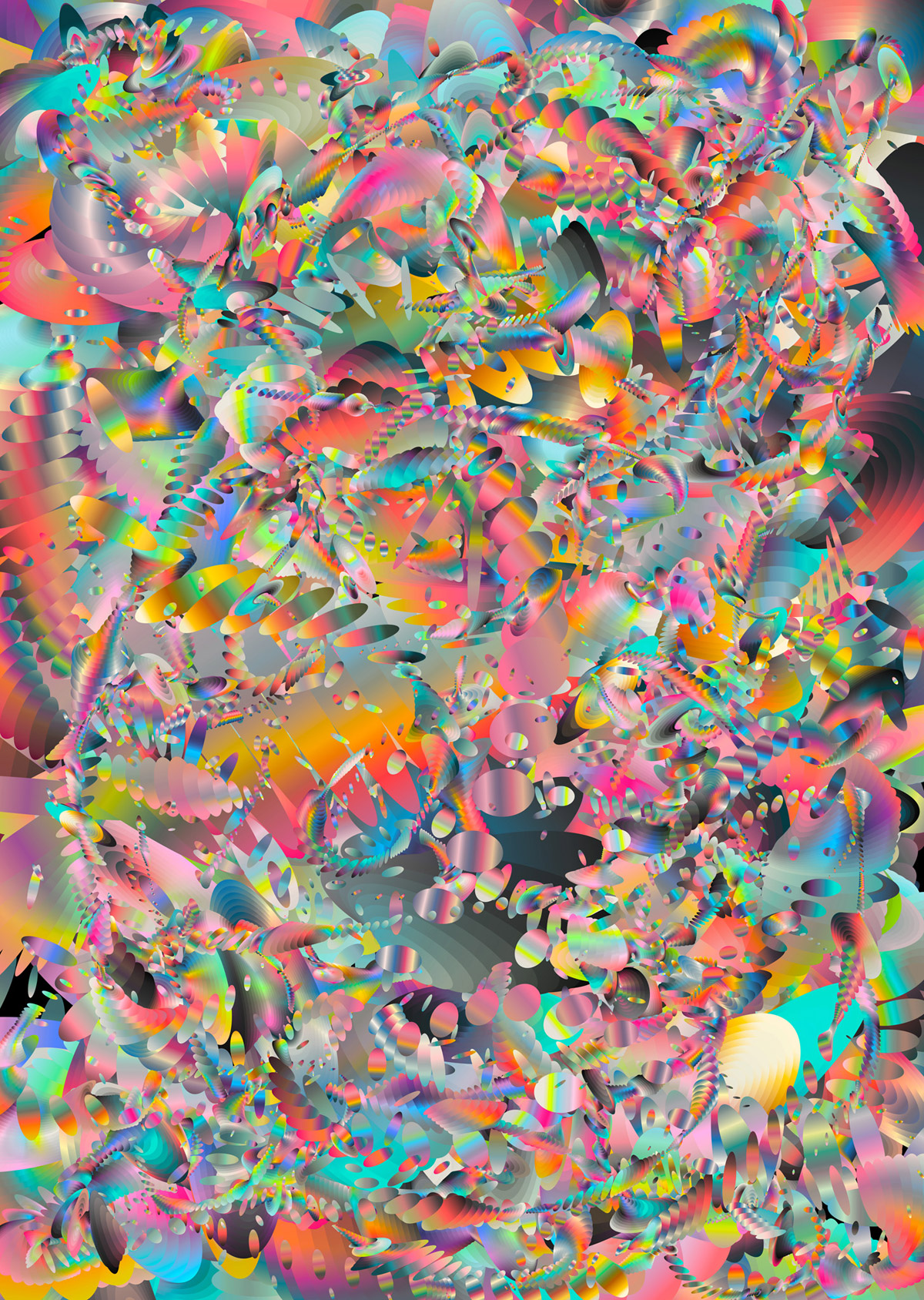
Towards Ever Deeper Fractals of Relationship: Entropy, Chaos, Anarchy, and Panentheism
 “I’ve succumbed [to panentheism]…but here’s the thing about panentheism: there is a reasonable probability, and it’s a reasonably well received theory that the Universe is running down, the law of entropy is inevitable, and the arrow of time is irreversible and the best estimate we have right now is that the expansion will expand to the point that things will just simply break down. Now, if you’ve transferred the Divine goods from eternity to time and from substance to process, panentheism is sort of left holding the bag of the expansion of the Universe. If you want to call that the body of God then the body of God is mortal. My view is, ok, if you want to call this (the Cosmos) the body of God then the body of God is mortal.” –John D. Caputo
“I’ve succumbed [to panentheism]…but here’s the thing about panentheism: there is a reasonable probability, and it’s a reasonably well received theory that the Universe is running down, the law of entropy is inevitable, and the arrow of time is irreversible and the best estimate we have right now is that the expansion will expand to the point that things will just simply break down. Now, if you’ve transferred the Divine goods from eternity to time and from substance to process, panentheism is sort of left holding the bag of the expansion of the Universe. If you want to call that the body of God then the body of God is mortal. My view is, ok, if you want to call this (the Cosmos) the body of God then the body of God is mortal.” –John D. Caputo
The above transcribed quote comes from radical theologian (and imo, undercover process theologian), John D. Caputo. I transcribed this quote recently while listening to Tripp Fuller interview Dr. Caputo (the quote above appears at about the 1 hr. mark) about his latest book, What to believe?
I’ve always liked Caputo’s writing and thinking, he was one of the first actual theologians I had ever read (and I’m aware that he doesn’t of think of himself as a theologian! He says this in the interview actually); his book, The Weakness of God, was eye opening for me and turned me on to theopoetics, Jacques Derrida, Catherine Keller, as well as process theology/philosophy more broadly, and I’m eternally grateful to him for that! What’s even better is that, during the interview with Tripp, Caputo comes out as a panentheist. I love it. Good for him! I still consider myself to be a type of panentheist as well, but who knows; that sort of thing has become less of a critical concern for me these days, it’s always been up in the air and most likely always will be.
Interestingly, what Caputo’s quote got me thinking about was not so much his “radical” God-is-mortal theory (as fascinating as this may be for some) but Caputo’s understanding of entropy here on which it is premised. It strikes me that by invoking the law of entropy Caputo is appealing to (like most people do) the big, bad, scary, nihilistic, materialist, heat-death understanding of this concept, one that he unquestioningly inherits from Western physicists obsessed with individualism, who also (to use Caputo’s wonderful phrase), perhaps, have reductionist, extractive, scientific materialism unknowingly running in the background. My friend and fellow para-academic (to steal Matt Baker’s term) Bryan Smigielski indicates that, yes “In a universe that progresses inevitably towards higher freedom-uncertainty-entropy, the superpositionality framing implies that all relational matter is destined to—even quasi-willing itself towards—a quantum heat death soup at the end of time.” BUT, in good anarchist and process-relational form Bryan offers an truly radical and iconoclastic alternative reading of quantum wave functions which inverts the arrow of time:
“If, on the other hand, relational entanglements are precisely what free matter from the fuzziness of quantum indistinguishability, then the entropic arrow towards higher uncertainty is an arrow that points towards ever deeper fractals of relationship—The very long story of my life’s work, put as short as possible, is that this inversion changes how we understand freedom to a freedom that is fundamentally at odds with the one capitalism is predicated on selling us. It is capital’s kryptonite, but it is locked beneath pillars of academia. Our imaginations will forever relapse into capital’s freedom, regardless of intention, until we can untangle this ontic language maze and move into the current of a radically different kind of time.”
Bryan’s unpublished piece was quoted here with permission (and there is lots more where that came from!); his work is ahead of it’s time (pardon the pun) and is most likely not welcomed by a nihilistic science that, as Richard Lubbock famously wrote, detests enjoyment (LOL!). But what if increased entropy does mean increased relationality? And what if the the measure of thermodynaic entropy, “chaos,” and “anarchy” (which, btw, are two terms often used quite synonymously) are not about complete disorder and confusion or hostility to democracy and pursuit of violence? What if chaos is more like what Whitehead thought it was, something that is inherent in the universe as a fundamental aspect of the creative process? What if chaos serves as the raw material from which order and novelty arise? What if Catherine Keller is correct that chaos is a dynamic and fertile ground where new possibilities emerge which can challenge traditional views of order and stability? What if chaos and entropy are not to be feared or avoided but rather engaged with as a source of innovation and change, perhaps reflecting the ongoing creative activity of the divine in the world? What then?
…
Art above, 055 — CORE INFINITE CHAOS EMULSION, by Chuck Anderson
0 Comments